Welcome to Sartorial Way
Men’s shirt (Shirt Anatomy)
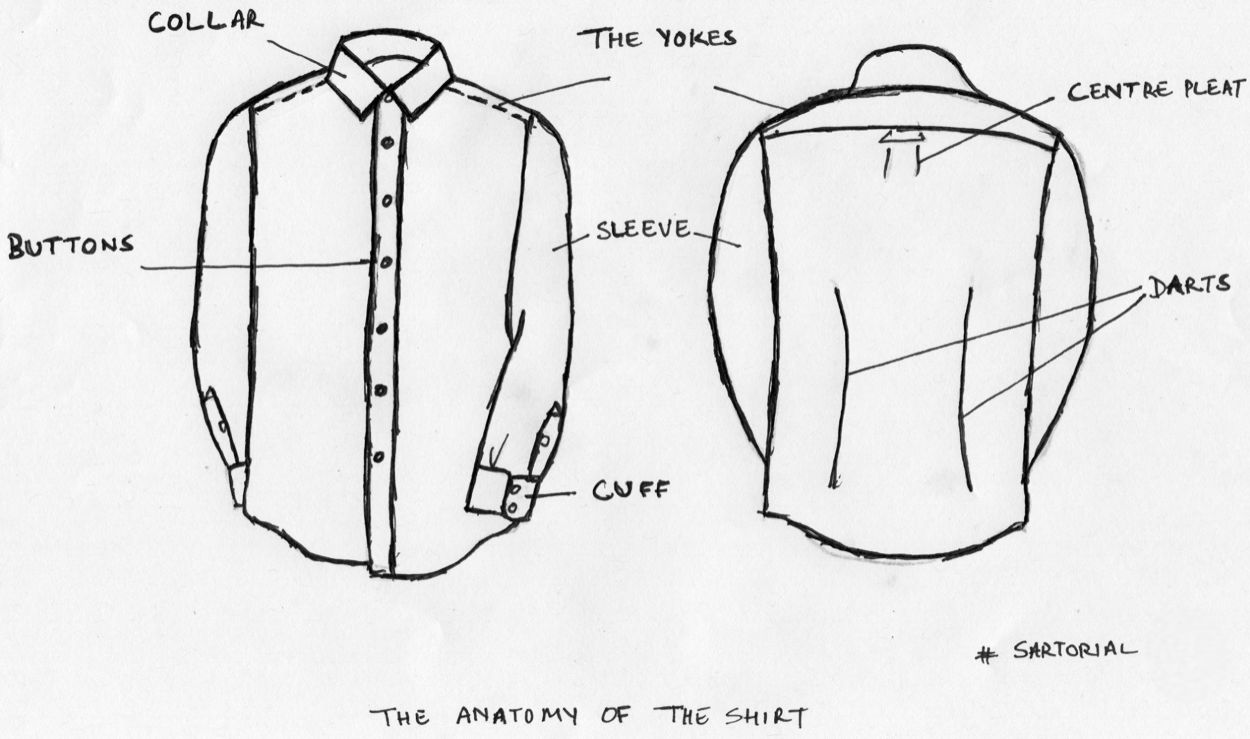
Everyone of us has probably worn a shirt at some point in our lives. However, how well are you informed about the components that make a men’s shirt? In the following paragraphs, we will explain the shirt’s anatomy in detail. You can easily relate this article to the product descriptions we use on our webshop. Sometimes the shirt description in our product catalogue can be confusing; this blog post will serve to bring clarity
The Yoke
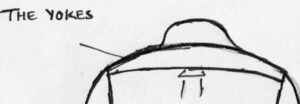
The whole shirt hangs from the top of the shirt which is called the “yoke”. The yoke is the section on the upper back and attached to the front pieces at the shoulder. The shirt hangs from the yoke. If the yoke does not fit the wearer, the whole shirt will not fit the body.
Armhole
The joint where the shirt sleeves meet the shirt body.
Sleeves
The parts of the shirt which covers person’s arms from shoulder bone to the hand is called sleeves. It comes as full sleeve and short sleeve. The short sleeves are casual in nature.
Collar
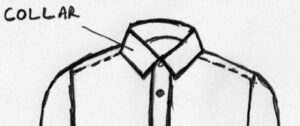
The pieces of the shirt fabric which wraps around the neck and attached to the top of the shirt at collar band/stand.
Collar stand
The fabric which connects the top of the shirt with the collar and wraps around the neck.
Sleeve cuff
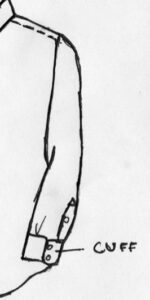
Long sleeve shirts come with the cuffs. The shirt cuff is a layer of fabric at the sleeve wrist end. Cuffs are usually made of layers of fabric sewn together along with lining material sandwiched between the two layers. The cuffs let a hand through the sleeve and can be fastened with different fastening mechanism (e.g., button, studs, cufflinks etc.)
Button placket
A strip of fabric folded off the edges of the left and right shirt front panels. The right panel buttons sewn to it and the left panel has the buttonholes
Back pleats
The extra fabric folded to provide extra room for body moment. Pleats can be in the center of the shirt or there could be two pleats either side. Centre peats shirts look more slimmer on body compared to side pleats.
Darts
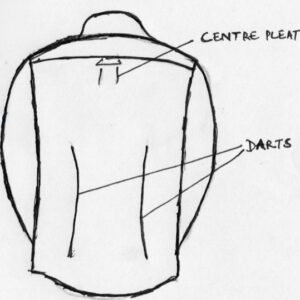
Shirt back fabric cut to follow the contour of wearer’s body and the two pieces are sewn together to give a shirt slimmer fit. Waistline darts are added at the back of the shirt to give a shirt slimmer silhouette. Darts also reduces the fabric tension (unusual fabric stretch caused by the body moment)
Fun Fact:
Until the twentieth century a shirt was considered an item of clothing that men could wear as underwear
